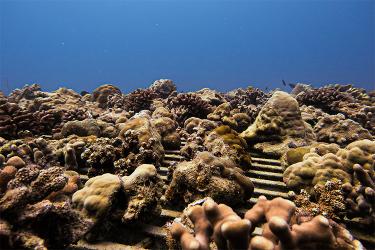A four-member team of external auditors is already at work carrying out NOAA’s Observer Safety Program Review as part of our ongoing efforts to assess and evaluate procedures for keeping U.S. fisheries observers and at-sea monitors safe. The health and safety of our observers and at-sea monitors is a top priority for the agency. Review team members will conduct on-site visits over the next six months with the agency’s Regional Observer Programs to gather program documentation relevant to the review. In addition, team members will also attend relevant meetings such as the recent Observer Provider Insurance Workshop in Washington D.C. The review team includes Kurt Heinz, Robert Markle, Teresa Turk, and Kim Dietrich.
Observers complete rigorous training. Photo: NOAA Fisheries
As announced in August, the review will focus on seven areas related to safety and health, including: safety reporting, communications, practices and policies, training, regulations, equipment, and international observer programs. The review findings will include a flexible self-evaluation tool that Regional Observer Programs can use to adapt to observer safety and health risks.
Current or former Fisheries observers interested in sharing safety concerns or experiences with the Review Team should contact the appropriate Review Team member by email.
After receiving the report, we will work with our national and regional observer programs, as well as observer provider companies, to implement recommendations from the report, ensuring all observers have what they need to stay safe and healthy on board. We anticipate that the results of the review will impact NOAA Fisheries observer programs and international observer programs alike.
A Broader Look at Observer Issues
The launch of the safety review is the first step of a multi-phased effort that also includes gathering and assessing information from key partners, recommending improvements, and developing self-evaluation tools.
As part of the broader effort, the agency is also looking at factors that contribute to observer retention. Because the scientific and statistical skills observers possess take time to hone and are essential to high-quality data collection, retaining knowledgeable and skilled observers is important to NOAA Fisheries. To find out more, the agency is asking past and present observers to share their point of view and experiences in an Observer Retention Survey. From this, we hope to learn more about steps we can take to ensure a steady, strong, and satisfied workforce.
Observers Play an Important Role

The data observers and at-sea monitors collect is integral to
U.S. fisheries management.
For more than four decades, the agency has utilized fishery observers and at-sea monitors to collect data from U.S. commercial fishing and processing vessels, as well as from shore-side processing plants and motherships. Our eyes and ears on the water, they are professionally trained biological scientists gathering first-hand data on what’s caught and thrown back. The high-quality data they collect is used to monitor fisheries, assess fish populations, set fishing quotas, and inform management.
The work is intense, and conditions can be uncomfortable. Observers may spend days, weeks, or months aboard commercial fishing and receiving vessels. Long trips, close quarters, and their role in monitoring compliance can sometimes lead to tensions onboard. Preparing observers for safe deployments requires an active partnership between NOAA Fisheries (including our Office of Law Enforcement and General Counsel), observers, observer providers, the U.S. Coast Guard, and the fishing industry.
Last Updated: March 8, 2017
For More Information
Jane DiCosimo
National Observer Program Coordinator
jane.dicosimo@noaa.gov


